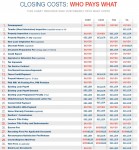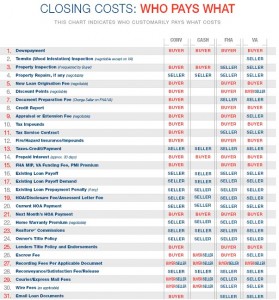Ensure A Smooth Mortgage Application Process

What to do before closing:
- You can still be denied for a mortgage loan, even after you’ve been pre-approved by the lender. The pre-approval is not a commitment or guarantee. You’ve been conditionally qualified for loan. But you need to stay qualified all the way up to the closing. The less your financial situation changes, the better.
- If you withdraw or transfer funds for any reason before closing, your lender will probably ask for a written explanation. They will also want to see a record of the transaction, such as your bank statements.
- Make sure you have a home owners insurance policy in place. Your lender will require this. They might even require you to pay the first year’s premium in advance, by setting up an escrow account. The lender may contact your insurance agent before closing day, to verify the policy and coverage amount.
- If you make any large deposits into your account, tell your lender about it. It will only help your cause, as far as mortgage approval goes. Provide any documents you have relating to the deposit.
What to avoid before closing day:
- Don’t spend a lot of money. Implement a self-imposed “spending freeze,” as much as possible. You obviously have to buy groceries, gas for your car, and other necessities. But don’t spend anything beyond that. Keep things as stable as possible until after you close on the home.
- It’s best to avoid any major purchases during this period. Your lender might have certain cash-reserve requirements for the loan. So a major reduction in assets could hurt your chances of getting the final approval.
- Don’t open any new credit lines, such as credit cards. The same goes for buying a car, applying for a store credit card, etc. These things will change your debt ratio, which could cause problems with your final approval. Mortgage lenders hate surprises.
- Don’t switch jobs before closing, unless it’s completely unavoidable. A new job usually brings a change in income, as well. If your income goes down, it will alter your debt-to-income ratio in a bad way. A change in employment will also require a lot of paperwork changes. Some lenders will verify your employment again, just before closing day.













